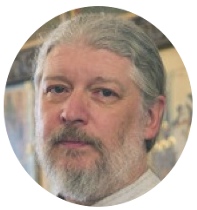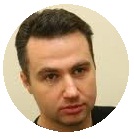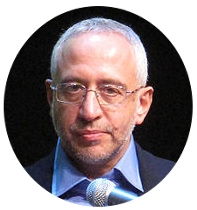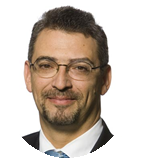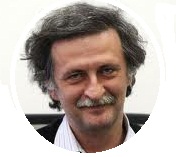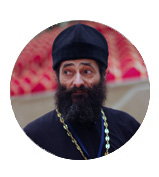The decline on Pushkinskoy Square (03.05.12)—the rise on Noviy Arbat (03.10.12)
03/13/2012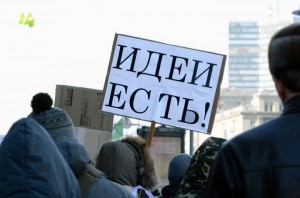 Date of publication: 03.13.2012
Date of publication: 03.13.2012
Results of the surveys of participants in the rallies “For fair elections!” in Moscow: December 24, 2011, on Prospekt Sakharova; February 4, 2012, on Bolotnoy Square; March 5, 2012, on Pushkinskoy Square; and March 10, 2012, on Noviy Arbat (each survey was taken by 200 people)
The work with the information is still in progress. In the next article, expect the following material: types of protesters, problems of the civilian movement in Russia, trust in leaders, and other information based on the surveys of the protesters
10 FACTS ABOUT THE PROTESTERS
(BASED ON INFORMATION IN THE SURVEYS AND OBSERVATION AT THE RALLIES)
NOT A POLITICAL PROTEST, BUT A POLITICAL WORK?
1. A lawful protest
More than half of the protesters want to express their support of the cause only in authorized rallies.
2. Participants in the rally are willing to participate in politics:
to participate in local governments, to exercise public control over the actions of authorities, and to participate in political parties and movements.
3. The absence of absolute trust, both in the authorities and in the leaders of the opposition.
The average estimate of trust in the authorities was a 2 on a scale of 1 to 10, and of trust in the opposition was a 6 on a scale of 1 to 10.
4. Opposition leaders without opposition and citizens without a citizen leader.
Not all participants in the rallies are ready to associate themselves personally with the opposition. Also, the answers to the survey question regarding which leaders the participants trust did not point to any one leader.
5. The position of a “mature” citizen:
more than a third of the respondents talk about the demand, not for a change in government, but for sociopolitical reform, and express willingness to participate in authorized rallies.
6. Family and freedom—
These are the main values of participants in the rallies.
7. From an emotional low to an emotional high.
The frustration and lack of readiness for action (March 5) have given place to joy and an emotional high (March 10).
8. The future is uncertain.
More than a third of those surveyed did not respond to the question about what Russia will be like 12 years from now.
9. One third of the participants in the rallies do not believe in God.
The number of Russian Orthodox participants varied from a fourth to a third of the participants.
10. Observance of Lent…
One out of five of the Russian Orthodox survey participants on March 5 and almost half of the Russian Orthodox survey participants on March 10 observed Lent.
Experts’ Commentaries on the Survey Results
Archpriest Alexy Uminsky, rector of the Moscow Church of the Holy Trinity in Khokhlov
In this case, difference of opinion is a sign that people are not afraid to be free and to think
The birth of a civil society and a civic consciousness seems to be in process in this country. Over the past 20 years, the Russian Orthodox Church has also gone through an important period in its revival, and much of what relates to the civil consciousness may also be applied to the church consciousness.
A great deal of difference of opinions has arisen, which could be dangerous. But in this case, difference of opinion is a sign that people are not afraid to be free, to think, and to compare; they are not afraid to make certain demands of their own, while remaining within the limits of civil society. People want to establish rather than destroy difference of opinions, and this is a good sign.
At the same time, I did not like to hear that the protests were inspired by the West—the political effect of such statements is easily understood. It should be noted that even among the opposition, there are those who turn people into a crowd, and we were also able to observe this.
I have seen people going out on the street; they are not easy to manipulate. People have a high level of critical conscientiousness. I would suggest this is an achievement that is in part due to the Russian Orthodox Church.
People go to various rallies and have the right to express their opinions. The majority of them are not at all aggressive, and the rallies themselves were generally non-aggressive. The Church’s position in this situation is beneficial and has a positive impact on citizens. Among those who went out on the streets, many were Christian, and Christians are not afraid to participate in the rallies.
The Russian Orthodox Church gives believers the right to hold a variety of beliefs. This is evident by how differently the priests themselves speak.
It is also clearly evident in the careful and tactical actions of the Holy Patriarch, in how he expresses concern, how he encourages people to be peaceful, and how he talks about the authorities having heard the dissatisfaction expressed by parts of society.
Andrei Melnikov, editor-in-chief of “NG-Religion,” a supplement to the “Nezavisimaya gazeta” (“Independent Newspaper”)
The current protests have a civil rather than a political character
The younger generation of oppositionists rejects paternalism.
It seems that the majority of the participants in the protest rallies first and foremost promote personal values, such as family and personal freedom. In certain periods in the history of Russia, a generation arises, ready to revolt against “God, king, and father.” Apparently, we are now witnessing the emergence of such a generation, which denies paternalism. This is expressed in nihilism, irony, and parodies of everything related to official propaganda. The current protests are of a civil rather than a political character because the driving force of the protests is the rejection of leadership and the “strong hand.” This is why the protest movement still has no leader or, pardon the expression, Fuehrer.
The participants in the demonstrations and marches also express a variety of political views. However, it is possible that when this survey lists “liberal, democratic, conservative, communist, socialist, Christian, and conservative” beliefs as an option, the respondents may be quite confused. For example, is it really possible to consider communist beliefs to be conservative or Christian? Can they really be defined by such a classification? Another point is that political views do not dominate among the protesters but rather faded into the background in the face of the emotional rejection of the current social and political establishment.
As to the religious sphere, there were some negative emotions directed toward the leadership of the Russian Orthodox Church. The younger generation prefers personal religiosity, where they themselves can choose their moral guidance. They may share the moral values of the Russian Orthodox or other spiritual traditions, but they may be annoyed by instructions such as the “Orthodox dress code” or the call to “pray quietly in homes and monasteries.” Meanwhile, the Church has adopted a patronizing tone toward the people, mimicking the manner of the secular leadership. Consequently, people are weary not only of the arrogance of the ruling power, but also of the arrogance of the Church leadership.
Archdeacon Alexander Ageikin, Archdeacon of the Christ the Savior Cathedral
“Churched” people do not attend the rallies
One cannot speak of there being a new type of person in Russia! This is nothing but a current fashion provoked by external irritants and the ideology of globalization. It is completely irrelevant to people’s religious outlook. In this case, all the references to certain religious views are obviously nothing but a smokescreen that fails to hide the complete lack of “churchedness” among this part of Russian society! “Churched” people do not attend the rallies because this type of self-expression is not characteristic for the Church.
Nikolai Svanidze, historian, television reporter, member of the RF Public Chamber
In Russia, such a citizen has appeared
This is not about a new type of citizen, but about how such a citizen has appeared in Russia. It must be said that the last ten years have seen the lack of such a citizen. There were elections, but people did not demonstrate their position as citizens. The activity on the streets has revealed the appearance of people with their own positions, who are not just interested in what they will eat for dinner, but who have moral and ethical principles and are interested in what is happening in the country—this is what is called love for the fatherland. Why there are still so few such people is another question. Taking an active position in life is an expression of real, unfeigned faith in God, of unfeigned religiosity; this is why there are so many believers among the protesters.
Ariel Cohen, political scientist, Russia expert (Senior Research Fellow, The Kathryn and Shelby Cullom Davis Institute for International Studies, The Heritage Foundation, Washington, DC)
Whether the Church can act as a peacemaker is an interesting question
One hundred and fifty years after the abolition of serfdom and the beginning of the rapid development of capitalism in Russia, people expressing opposition have appeared in capitals and large cities. These people are unhappy with the autocracy, corruption, and state of affairs in the country and suggest a more progressive, democratic, and Western form of government.
Today they remain a minority and are politically disunited. Don’t judge too harshly if this looks like the state of society somewhere in 1880. If somebody claims that society always progresses, I do not believe it. Just look at the painful history of Europe in the 20th century, especially in the first two thirds of the previous century, and see just how much progress is related to the passage of time. Russia and Germany are prime examples.
One may ask whether the process of social protest will follow the beaten path of Russian history: some turning to the permitted opposition, some to extremism, and some to emigration. Most likely, the answer is yes.
With the exception of pagan Nazis and atheistic liberals and socialists, most will remain in mainstream Christianity or agnosticism. Of course the Church (the Moscow Patriarchate) does not lead the protest and opposition—that would not be typical or according to its track record. The question of whether the Church can act as a peacemaker is an interesting one. A peacemaker and mediator should be a priori neutral, which is not true in the case of the Patriarchy, especially when one takes into account the bond between a few individual hierarchs and fathers of the nation. This also has its historical precedents.
But the Church, thank God, is great. So perhaps there are fathers who poison the opposition, who call for civil peace, and who maybe hold the government to the path that is guided by peace and love. May God grant that it be so!
And to those who remain in the protest movement, three commandments from another time: “Do not be afraid, do not hope, do not ask….”
Alexander Malyutin, editor-in-chief of the newspaper “Izvestiya” (“News”)
Citizens now are the same as they have always been
Citizens now are the same as they have always been.
The percentage that goes out into the streets to protest simply depends on the level of dissatisfaction.
Father Makariy (Markish), teacher at the Ivano-Ascension spiritual seminary
A cherished goal of Russia’s enemies: to equate “civil society” with “protests”
A terrible misconception on our part and a cherished goal of Russia’s enemies is to equate “civil society” with “protests.”
I am convinced that on the banks of the Potomac River there is a special department tasked with the forced brainwashing, if not of all, then of the most active Russian citizens (the youth, the intelligentsia), to make us unable to distinguish between civic responsibility toward one’s fatherland and mindless nihilism and destruction.
I quote Solzhenitsyn from memory: “When the Russian intellectual decided not to shake hands with the police, but instead happily stretched out his hand to the revolutionary, Russia died.” And now the enemy’s dream is to reenact that exact scenario. Will this remain a dream?
Meanwhile, America, a country with four hundred years of citizenship, presents exactly the opposite picture: civil feeling and freedom serve as the unshakeable foundation for national stability and confidence in the future (for better or for worse—that is another question . . .)—but this topic, of course, requires a separate discussion.
Thus: a “new type of citizen” is definitely emerging before our eyes because we do not have the “old type of citizen” and have not had it for the last 95 years. And the struggle, not for life but to the death, goes along with this mood: whether that mood is constructive or “protest.”


